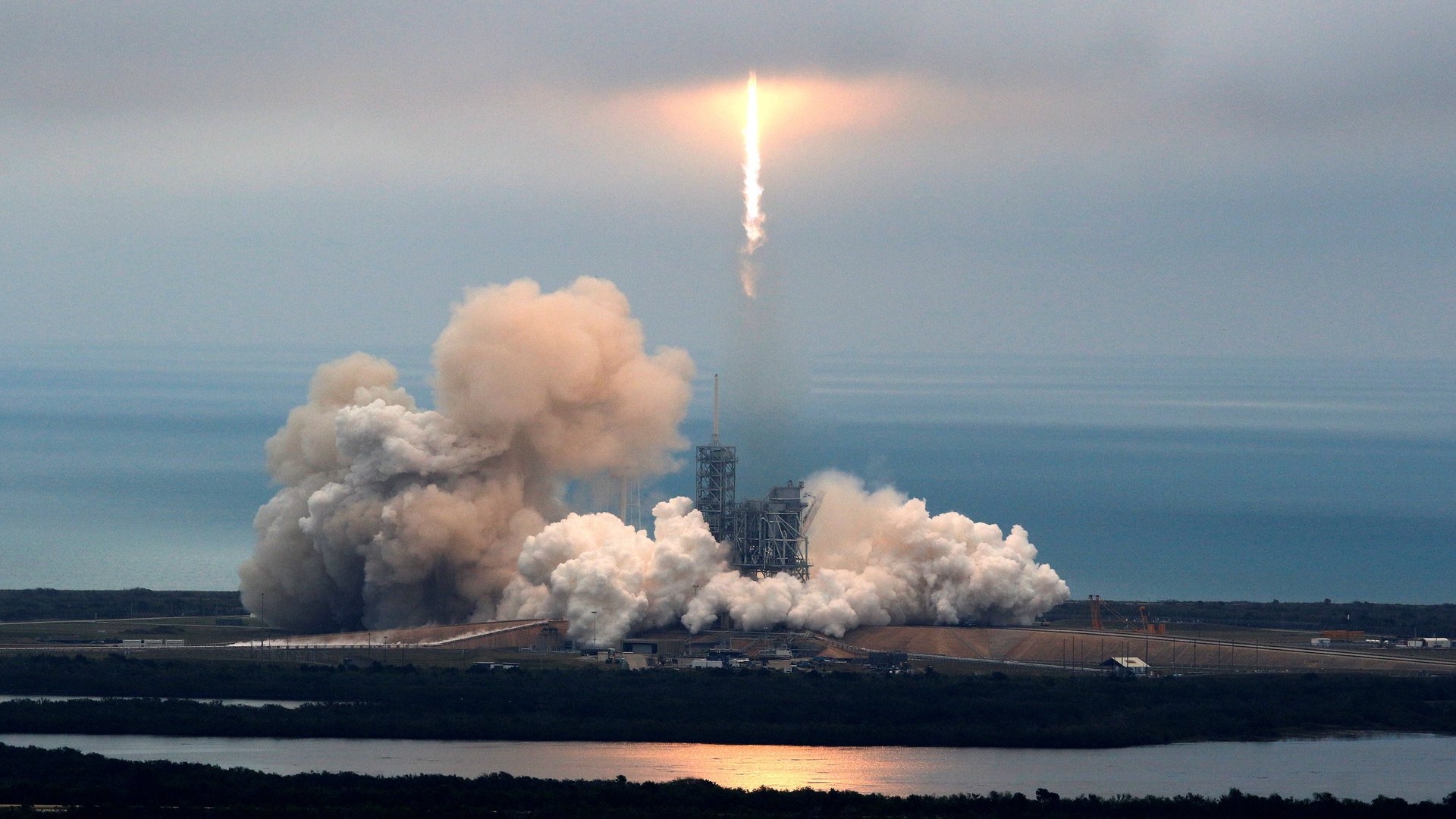You can earn six figures from NASA if you’re willing to protect Earth from alien life
If you’re on the job market and happen to have an advanced STEM degree (or equivalent experience), and willing to take a drug test and stop alien life from reaching Earth, NASA’s got the job for you. Now through August 14, 2017, the US space agency is taking applications for the role of Planetary Protection Officer.


If you’re on the job market and happen to have an advanced STEM degree (or equivalent experience), and willing to take a drug test and stop alien life from reaching Earth, NASA’s got the job for you. Now through August 14, 2017, the US space agency is taking applications for the role of Planetary Protection Officer.
It’s fun to imagine that the job involves fighting advanced alien attacks like a movie action hero. But in reality, as Gizmodo reports, it’s more about protecting other planets from us.
NASA created the PPO position after the US agreed to a 1967 international treaty on space exploration guidelines. In it, international researchers agreed to what was basically an extremely thorough version of “leave no trace,” a phrase familiar to campers everywhere. If we were to accidentally bring life to anywhere outside of Earth, scientists have no idea if and how it would affect other planets. Microbes may colonize the place, or they may mess with extraterrestrial life we haven’t even discovered yet.
The original treaty mandates that any mission to space must have a 1 in 10,000 chance (or lower) of accidentally contaminating an area with our own microbial life. In an interview with Business Insider, Catharine Conley, a NASA scientist who currently holds the position of PPO, described these odds as “moderate” precaution. “It’s not extremely careful, but it’s not extremely lax,” she said.
When we send anything to land on another planet, whether it’s a ship full of humans or just a rover, we run the risk of sending microbial contaminants with it. Microbes are hardy little buggers, and because they’re so small and divide so quickly, it’s pretty challenging to know if you’re really leaving nothing behind. And sure, space is pretty uninhabitable being a freezing vacuum and all, but we know that some microbial life can survive out there—or at least start growing again once it comes back to Earth.
Gizmodo reported in 2015 we have no idea what space microbes would be capable of doing to us, or the other plants and animals with whom we share the planet. To date, we’ve been vigilant about preventing any chance of finding out: Back when US astronauts first landed on the moon, they were quarantined for three weeks to make sure they weren’t accidentally bringing back any foreign materials, and the decontamination plans for bringing samples back from Mars involve at least two sterile barriers.
So even though the PPO gig has nothing to do with punching aliens in the face, it’s still a really important job. And it pays from $124,406 to $187,000 per year for three years, with the possibility of extending two more. Who hasn’t dreamt of being paid to protect planets from foreign life?